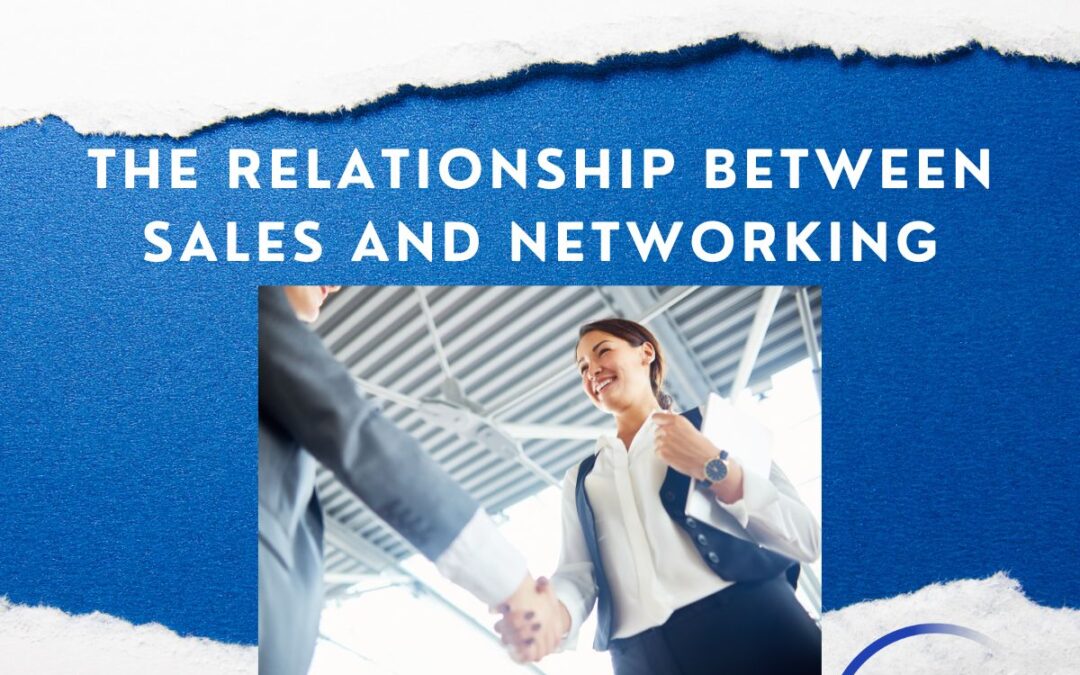Let’s talk about how to ‘do’ networking. But hold up—it’s not all about awkward small talk or swapping business cards like confetti. Instead, visualize building genuine connections that last for years. Networking can mean attending industry events, utilizing the power of social media, and engaging authentically to create these lasting relationships. Remember, it’s quality over quantity in the world of networking. But I want to get technical for a minute and let me explain how important networking is to the sales cycle.
We all know that networking plays a crucial role in the sales function by building valuable connections that can lead to future lead opportunities. But often we forget how important! Both networking and sales involve building and nurturing relationships with potential clients, industry peers, and others helping to expand your professional network. The return on investment (ROI) of networking is complicated. First, it provides access to a broader pool of potential prospects, increasing the likelihood of finding qualified leads and closing deals. Additionally, networking cultivates trust and credibility, making it easier to establish rapport with prospects and overcome objections during the sales process. By tapping into the resources of your network, you can gain valuable insights to support and enhance your sales effectiveness. Overall, networking is a strategic investment that eventually yields tangible returns in the form of expanded opportunities, enhanced reputation, and accelerated sales growth. So how do we strategically network?
Strategic Engagement: Networking for Lead Generation
Networking isn’t just about making friends or after-hours dinners; it’s a strategic game plan for generating leads. To use networking to its full potential, tailor your approach to resonate with your target audience. Platforms like LinkedIn offer abundant ground for meaningful interactions, allowing you to connect with prospects and industry peers alike. Position yourself as a trusted authority by sharing valuable insights and engaging content. By nurturing relationships and consistently adding value, you can convert cold leads into loyal customers who see you as a valuable resource in their industry. By cultivating new relationships while adding value, in time you’ll be able to turn cold leads into loyal customers.
Attending in-person events is crucial for lead generation as they offer unique opportunities for face-to-face interaction and relationship building. I know, sometimes the last thing you feel like doing is attending a happy hour or dinner after a long day at the office or when traveling. But unlike digital channels, such as social media or email, in-person events allow individuals to establish genuine connections and build rapport with prospects face to face. Engaging in meaningful conversations and exchanging contact information in a physical setting can greatly enhance the likelihood of converting leads into customers. Attending industry-specific events enables professionals to stay updated on market trends, gather valuable customer insights, and identify potential business opportunities.
Understanding ROI Metrics of Networking
But wait, how do you know if your networking efforts are paying off? Cue the ROI metrics. Explore your marketing data with a fine-tooth comb, tracking how many leads are converting, diving into what it costs to acquire them, and calculating the long-term value each customer brings. These data insights are like important to fine-tuning your sales strategy. Plus, make sure to tag your leads in your CRM system to keep things organized and to tailor your follow-ups for maximum impact.
Effective Networking Steps
Networking-love it or hate it, it is a necessary part of business for sales professionals! As a recap, here is how to do it effectively. Actively participate in industry events, conferences, and online forums to connect with professionals in your field, remember that this is your opportunity to build relationships. Engage in meaningful conversations, share your expertise, and seek opportunities for collaboration. Leverage these connections to gain valuable insights, mentorship, and potential job opportunities. Approach each networking event with a career growth mindset, focusing on either learning new skills and realize that every networking experience will ultimately enhance your professional development and expand your career prospects. Network like your business depends on it because it does!
So there you have it. Networking and ROI aren’t just buzzwords—they’re your tickets to easier sales. Once you embrace building authentic connections, use the power of data-driven ROI analysis, you should be able to see an increase in sales with little additional effort. I’m off to a conference as I type this and am looking forward to meeting individuals within my industry.
What are your thoughts on networking? Are you over it? Or do you love it and wish there were more opportunities in your profession to do so. Drop your thoughts in the comments below, I’d love to hear from you.
#SalesStrategy #BusinessNetworking #LeadGeneration #B2BSales

